 W
WAristotle was a Greek philosopher and polymath during the Classical period in Ancient Greece. Taught by Plato, he was the founder of the Lyceum, the Peripatetic school of philosophy, and the Aristotelian tradition. His writings cover many subjects including physics, biology, zoology, metaphysics, logic, ethics, aesthetics, poetry, theatre, music, rhetoric, psychology, linguistics, economics, politics, meteorology, geology and government. Aristotle provided a complex synthesis of the various philosophies existing prior to him. It was above all from his teachings that the West inherited its intellectual lexicon, as well as problems and methods of inquiry. As a result, his philosophy has exerted a unique influence on almost every form of knowledge in the West and it continues to be a subject of contemporary philosophical discussion.
 W
WGaston Bachelard was a French philosopher. He made contributions in the fields of poetics and the philosophy of science. To the latter, he introduced the concepts of epistemological obstacle and epistemological break. He influenced many subsequent French philosophers, among them Michel Foucault, Louis Althusser, Dominique Lecourt and Jacques Derrida, as well as the sociologists Pierre Bourdieu and Bruno Latour.
 W
WHugh Blair FRSE was a Scottish minister of religion, author and rhetorician, considered one of the first great theorists of written discourse.
 W
WJan Blommaert was a Belgian sociolinguist and linguistic anthropologist, Professor of Language, Culture and Globalization and Director of the Babylon Center at Tilburg University, the Netherlands. He also held appointments at Ghent University (Belgium) and University of the Western Cape. He was considered to be one of the world's most prominent sociolinguists and linguistic anthropologists, who had contributed substantially to sociolinguistic globalization theory that focuses on historical as well as contemporary patterns of the spread of languages and forms of literacy, and on lasting and new forms of inequality emerging from globalization processes.
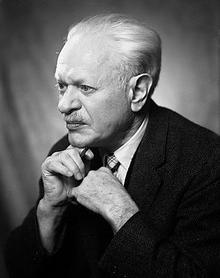 W
WKenneth Duva Burke was an American literary theorist, as well as poet, essayist, and novelist, who wrote on 20th-century philosophy, aesthetics, criticism, and rhetorical theory. As a literary theorist, Burke was best known for his analyses based on the nature of knowledge. Further, he was one of the first individuals to stray away from more traditional rhetoric and view literature as "symbolic action."
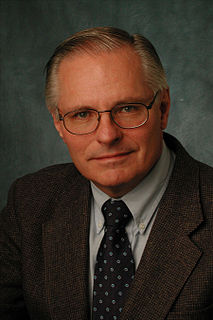 W
WRobert T. Craig is a communication theorist from the University of Colorado, Boulder who received his BA in Speech at the University of Wisconsin–Madison, and his MA and PhD in communication from Michigan State University. Craig was on the 1988 founding board of the journal "Research on Language and Social Interaction," a position he continues to hold. From 1991 to 1993 Craig was the founding editor of the International Communication Association journal "Communication Theory" which has been in continuous publication since 1991. He is currently the editor for the ICA Handbook series. In 2009 Craig was elected as a Lifetime Fellow for the International Communication Association, an organization he was president for in 2004–2005.
 W
WJacques Derrida was an Algerian-born French philosopher best known for developing a form of semiotic analysis known as deconstruction, which he analyzed in numerous texts, and developed in the context of phenomenology. He is one of the major figures associated with post-structuralism and postmodern philosophy.
 W
WMarsilio Ficino was an Italian scholar and Catholic priest who was one of the most influential humanist philosophers of the early Italian Renaissance. He was an astrologer, a reviver of Neoplatonism in touch with the major academics of his day, and the first translator of Plato's complete extant works into Latin. His Florentine Academy, an attempt to revive Plato's Academy, influenced the direction and tenor of the Italian Renaissance and the development of European philosophy.
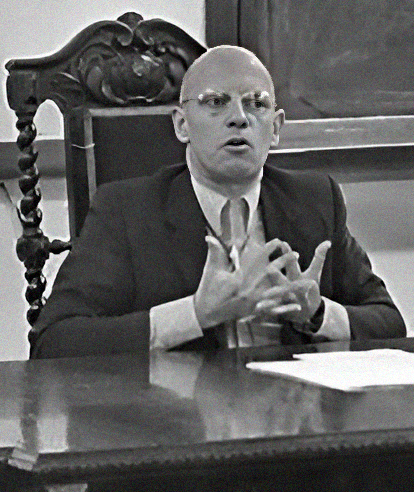 W
WPaul-Michel Foucault was a French philosopher, historian of ideas, writer, political activist, and literary critic.
 W
WBenjamin Franklin was an American polymath who was active as a writer, scientist, inventor, statesman, diplomat, printer, publisher and political philosopher. Among the leading intellectuals of his time, Franklin was one of the Founding Fathers of the United States, a drafter and signer of the United States Declaration of Independence, and the first United States Postmaster General. As a scientist, he was a major figure in the American Enlightenment and the history of physics for his discoveries and theories regarding electricity. As an inventor, he is known for the lightning rod, bifocals, and the Franklin stove, among other inventions. He founded many civic organizations, including the Library Company, Philadelphia's first fire department, and the University of Pennsylvania. Franklin earned the title of "The First American" for his early and indefatigable campaigning for colonial unity, initially as an author and spokesman in London for several colonies. As the first United States Ambassador to France, he exemplified the emerging American nation. Franklin was foundational in defining the American ethos as a marriage of the practical values of thrift, hard work, education, community spirit, self-governing institutions, and opposition to authoritarianism both political and religious, with the scientific and tolerant values of the Enlightenment. In the words of historian Henry Steele Commager, "In Franklin could be merged the virtues of Puritanism without its defects, the illumination of the Enlightenment without its heat." To Walter Isaacson, this makes Franklin "the most accomplished American of his age and the most influential in inventing the type of society America would become."
 W
WEdward Gibbon was an English historian, writer, and Member of Parliament. His most important work, The History of the Decline and Fall of the Roman Empire, published in six volumes between 1776 and 1788, is known for the quality and irony of its prose, its use of primary sources, and its polemical criticism of organised religion.
 W
WGroupe μ is the collective pseudonym under which a group of Belgian 20th-century semioticians wrote a series of books, presenting an exposition of modern semiotics.
 W
WJürgen Habermas is a German philosopher and sociologist in the tradition of critical theory and pragmatism. His work addresses communicative rationality and the public sphere.
 W
WThomas Hobbes was an English philosopher, considered to be one of the founders of modern political philosophy. Hobbes is best known for his 1651 book Leviathan, in which he expounds an influential formulation of social contract theory. In addition to political philosophy, Hobbes contributed to a diverse array of other fields, including history, jurisprudence, geometry, the physics of gases, theology, and ethics, as well as philosophy in general.
 W
WGeorg Johannesen was a Norwegian author and professor at the University of Bergen.
 W
WBernard Joseph Francis Lonergan was a Canadian Jesuit priest, philosopher, and theologian, regarded by many as one of the most important thinkers of the 20th century.
 W
WEric McLuhan was a communications theorist and media ecologist, son of Marshall McLuhan.
 W
WHerbert Marshall McLuhan was a Canadian philosopher, whose work is among the cornerstones of the study of media theory. Born in Edmonton, Alberta, and raised in Winnipeg, Manitoba, McLuhan studied at the University of Manitoba and the University of Cambridge. He began his teaching career as a professor of English at several universities in the United States and Canada before moving to the University of Toronto in 1946, where he remained for the rest of his life.
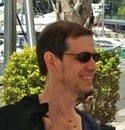 W
WPhilippe Monneret is a French linguist. He is Professor of Linguistics at University of Burgundy since 2004 and at Paris-Sorbonne University since 2015. In 2003, he founded Les Cahiers de Linguistique Analogique and created the field of analogical linguistics. He is a member of the editorial board of «Romanica Olomucensia».
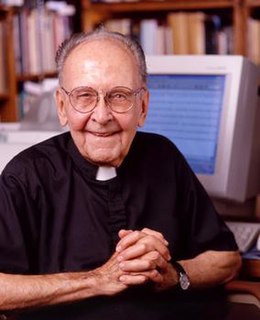 W
WWalter Jackson Ong was an American Jesuit priest, professor of English literature, cultural and religious historian, and philosopher. His major interest was in exploring how the transition from orality to literacy influenced culture and changed human consciousness. In 1978 he served as elected president of the Modern Language Association.
 W
WEric Arthur Blair known by his pen name George Orwell, was an English novelist, essayist, journalist and critic. His work is characterised by lucid prose, biting social criticism, total opposition to totalitarianism, and outspoken support of democratic socialism.
 W
WHenry Peacham (1546–1634), sometimes called Henry Peacham the Elder, was an English curate, best known for his treatise on rhetoric entitled The Garden of Eloquence, first published in 1577. He lived at Leverton-in-Holland, in Lincolnshire, and was the father of Henry Peacham the Younger, who also became an author.
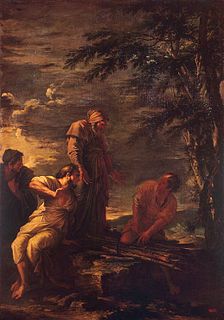 W
WProtagoras was a pre-Socratic Greek philosopher and rhetorical theorist. He is numbered as one of the sophists by Plato. In his dialogue Protagoras, Plato credits him with inventing the role of the professional sophist.
 W
WMarcus Fabius Quintilianus was a Roman educator and rhetorician from Hispania, widely referred to in medieval schools of rhetoric and in Renaissance writing. In English translation, he is usually referred to as Quintilian, although the alternate spellings of Quintillian and Quinctilian are occasionally seen, the latter in older texts.
 W
WPetrus Ramus was an influential French humanist, logician, and educational reformer. A Protestant convert, he was one of the most prominent victims of the St. Bartholomew's Day massacre.
 W
WBertrand Arthur William Russell, 3rd Earl Russell was a British polymath. As an academic, he worked in philosophy, mathematics, and logic. His work has had a considerable influence on mathematics, logic, set theory, linguistics, artificial intelligence, cognitive science, computer science, and various areas of analytic philosophy, especially philosophy of mathematics, philosophy of language, epistemology and metaphysics. He was a public intellectual, historian, social critic, political activist, and Nobel laureate. He was born in Monmouthshire into one of the most prominent aristocratic families in the United Kingdom.
 W
WRobert Rowland Smith is a British author and philosopher. His books include Derrida and Autobiography, Breakfast with Socrates: The Philosophy of Everyday Life, and AutoBioPhilosophy: An Intimate Story of What It Means to Be Human. He is a regular speaker at public and private events, addressing a wide range of topics that includes philosophy, psychology, politics, and art. Alongside his literary career, Smith works as a business adviser and practitioner of Systemic Family Constellations.
 W
WThomas Clarkson Trueblood was an American professor of elocution and oratory and the first coach of the University of Michigan golf and debate teams. He was affiliated with the University of Michigan for 67 years from 1884 to 1951, and was a nationally known writer and speaker on oratory and debate. He founded UM's Department of Elocution and Oratory as well as the campus debate program. He became the subject of national media attention in 1903 when the Chicago Tribune ran an article stating that he was offering a new "course in love making." His golf teams won two NCAA National Championships and five Big Ten Conference championships. He was posthumously inducted into the University of Michigan Athletic Hall of Honor in 1981.
 W
WMark Turner is a cognitive scientist, linguist, and author. He is Institute Professor and Professor of Cognitive Science at Case Western Reserve University. He has won an Anneliese Maier Research Prize from the Alexander von Humboldt Foundation (2015) and a Grand Prix from the French Academy (1996) for his work in these fields. Turner and Gilles Fauconnier founded the theory of conceptual blending, presented in textbooks and encyclopedias. Turner is also the director of the Cognitive Science Network (CSN) and co-director of the Distributed Little Red Hen Lab.
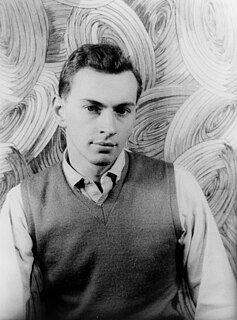 W
WEugene Luther Gore Vidal, better known as Gore Vidal, was an American writer and public intellectual known for his epigrammatic wit, erudition, and patrician manner. Vidal was bisexual, and in his novels and essays interrogated the social and cultural sexual norms he perceived as driving American life. Beyond literature, Vidal was heavily involved in politics. He twice sought office—unsuccessfully—as a Democratic Party candidate, first in 1960 to the United States House of Representatives, and later in 1982 to the U.S. Senate.
 W
WVictor Villanueva is a Brooklyn-born Puerto Rican academic and scholar in rhetoric and composition studies, serving the role of Regents Professor Emeritus at Washington State University. Villanueva was awarded NCTE’s David Russell Award for Distinguished Research in the Teaching of English for his groundbreaking book Bootstraps, From an American Academic of Color. In 2009, Villanueva was the recipient of the Conference on College Composition and Communication Exemplar's Award. Villanueva has written and edited a number of significant works on the topic of race, rhetoric, basic writing, and the social and political contexts of literacy education.
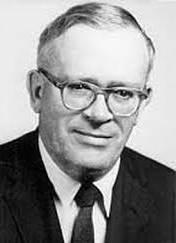 W
WRichard Malcolm Weaver, Jr was an American scholar who taught English at the University of Chicago. He is primarily known as an intellectual historian, political philosopher and a mid-20th century conservative and as an authority on modern rhetoric.